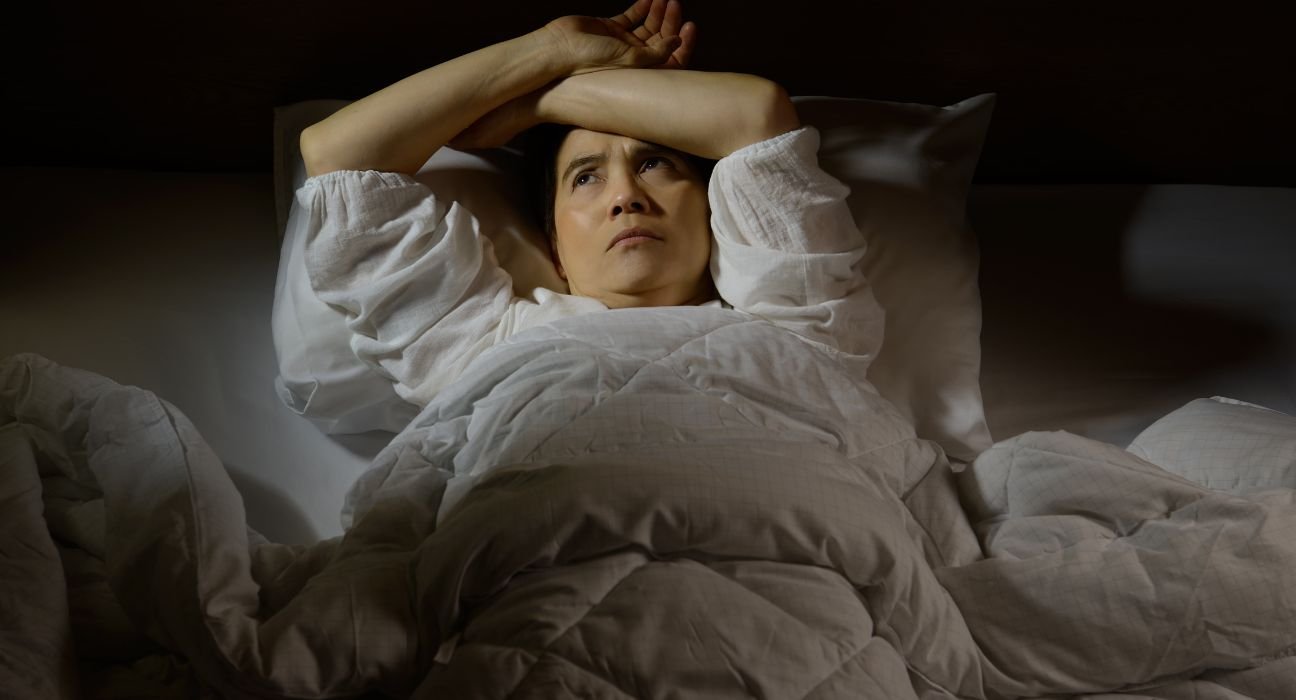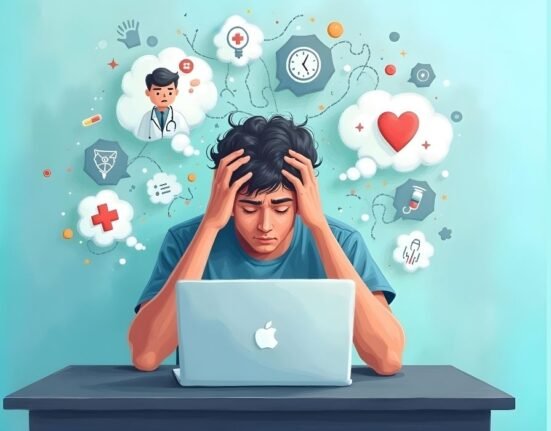In our day-to-day life, we often talk about productivity and hard work. Among the chaos, the necessary thing is ignored i.e. sleep. Biologically speaking, sleep is essential for various bodily functions, such as cell repair, improved digestion, and maintaining immunity, among many other things. On the psychological front, studies have shown that sleep is crucial for proper memory consolidation, better emotional well-being, enhanced problem-solving skills etcetera. Studies over the centuries have shown that humans as well as animals can develop sleep disorders. We will be discussing one particular type today which is sleep anxiety.
Read More: Psychology behind Productivity
What is Sleep Anxiety?
Sleep anxiety refers to the fear of not being able to fall asleep or stay asleep. It’s a self-perpetuating cycle where anxiety leads to difficulty sleeping, which then exacerbates the anxiety. People with sleep anxiety often experience racing thoughts, worry about not falling asleep, get tensed about work that is still incomplete and many other similar things. Over a long enough time frame, this can lead to increased heartbeat, excessive sweating and restlessness.
Risk factors:
- Insomnia: It refers to a common sleep disorder where a person may:
- Find it difficult to fall asleep
- Wake up multiple times during the night
- Feel tired post-sleep
- Difficulty concentrating on work
- PTSD: Post Traumatic Stress Disorder (PTSD) is a condition where patients may have sudden flashbacks of a traumatic event from the past. This can lead to restlessness around bedtime which can in turn lead to disrupted sleep patterns.
- GAD: It’s a condition where a person suffers from persistent and excessive worry about a number of things for at least 6 months. The person feels overwhelmed constantly with unrealistic worries. This can make sleep a challenging task.
Let’s talk about sleep hygiene. It refers to healthy habits which can help one with a good night’s sleep. It includes a number of practices. Some of them have been listed below.
Practicing sleep hygiene:
- Sleeping at the same time and waking up at the same time: A consistent sleeping schedule helps regulate the circadian rhythm (body’s natural clock).
- Remove electronic devices from the vicinity at least an hour before going to sleep: Blue light has been proven to disrupt the melatonin secretion in our brains, which is responsible for making us fall asleep.
- Avoiding large meals before bedtime: A heavy meal makes your body focus on digestion rather than sleep. Also, consuming foods high in carbohydrates spikes blood sugar levels which can make one feel restless. Similarly, food items containing caffeine should be avoided since it can disrupt sleep patterns.
- Avoiding sleep during the day: Daytime naps, especially long ones, lower the sleep drive, leaving one less tired at bedtime and potentially causing insomnia. Napping can also lead to sleep inertia, which can leave a person groggy and disoriented.
- Creating a sleep-inducing environment: The room should be cool, quiet and dark since sleep requires all three of these. A white noise machine or an earplug can be used to drown out unnecessary noises if necessary.
Read More: 15 proven Tips for Better Sleep Hygiene
Sleep and Mental Health
Sleep and mental health are correlated. Sleep difficulties can be caused by mental health conditions, and anxiety and depression symptoms can be made worse by inadequate sleep. For example, anxiety disorders can cause hyperarousal at night, which makes it more difficult for people to fall asleep. similarly, those who are depressed could have trouble sleeping or waking up early.
Hence, treating sleep anxiety is essential for both maintaining mental health and improving the quality of sleep. If someone’s quality of life is being severely impacted by this, it may be helpful to seek assistance from a therapist, counsellor, or sleep specialist. In a world hyper-focused on productivity, sleep can often be treated as a luxury rather than a necessity. By practising proper sleep hygiene and being mindful of the risk factors associated with this issue, we can guarantee not just better rest, but improved overall well-being. In the end, a healthy mind and body are the very foundations of productivity and success.
References +
- Wilbanks, J. (2021, April 2). Healthy Sleep Habits – Sleep Education by the AASM. Sleep Education. https://sleepeducation.org/healthy-sleep/healthy-sleep-habits/
- Sleep Disorders | Anxiety and Depression Association of America, ADAA. (n.d.). https://adaa.org/understanding-anxiety/related-illnesses/sleep-disorders
- VA.gov | Veterans Affairs. (n.d.). https://www.ptsd.va.gov/professional/treat/cooccurring/sleep_problems_vets.asp
- Anxiety disorders. (n.d.). National Institute of Mental Health (NIMH). https://www.nimh.nih.gov/health/topics/anxiety-disorders
- Basso, J. C., & Suzuki, W. A. (2017). The effects of acute exercise on mood, cognition, neurophysiology, and neurochemical pathways: a review. Brain Plasticity, 2(2), 127–152. https://doi.org/10.3233/bpl-160040













Leave feedback about this